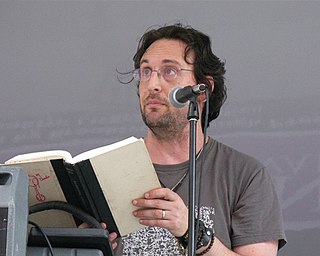A Quote by Sloane Crosley
I thought I was going to write fiction but I fell backwards into non-fiction. It started when I got locked out of two apartments in one day and I told the story to some friends, one of whom worked in the 'Village Voice' and asked me to turn it into an essay.
Related Quotes
I was trained mainly as a short story writer and that's how I started writing, but I've also become very interested in non-fiction, just because I got a couple of magazine jobs when I was really poor and needed the money and it turned out that non-fiction was much more interesting than I thought it was.
I worked out a book which I thought was just straight science fiction -- with everything pretty much explained, and suddenly I got an idea which I thought was kind of neat for working in a mythological angle. I'm really struggling with myself. It would probably be a better book if I include it, but on the other hand I don't always like to keep reverting to it. I think what I'm going to do is vary my output, do some straight science fiction and some straight fantasy that doesn't involve mythology, and composites.
In high school, in 1956, at the age of sixteen, we were not taught "creative writing." We were taught literature and grammar. So no one ever told me I couldn't write both prose and poetry, and I started out writing all the things I still write: poetry, prose fiction - which took me longer to get published - and non-fiction prose.
I started out in graduate school to be a fiction writer. I thought I wanted to write short stories. I started writing poems at that point only because a friend of mine dared me to write a poem. And I took the dare because I was convinced that I couldn't write a good poem... And then it actually wasn't so bad.
You can, in short, lead the life of the mind, which is, despite some appalling frustrations, the happiest life on earth. And one day, in the thick of this, approaching some partial vision, you will (I swear) find yourself on the receiving end of - of all things - an "idea for a story," and you will, God save you, start thinking about writing some fiction of your own. Then you will understand, in what I fancy might be a blinding flash, that all this passionate thinking is what fiction is about, that all those other fiction writers started as you did, and are laborers in the same vineyard.
Back in the day, a lot of our instructors in nonfiction were actually fiction scholars. So they would bring in stories as models for the essay. And in some ways that's a good idea, because we can all learn from other genres. But I think it also made me realize that I literally didn't have an essay model, and that if I wanted one I would have to find it.






































